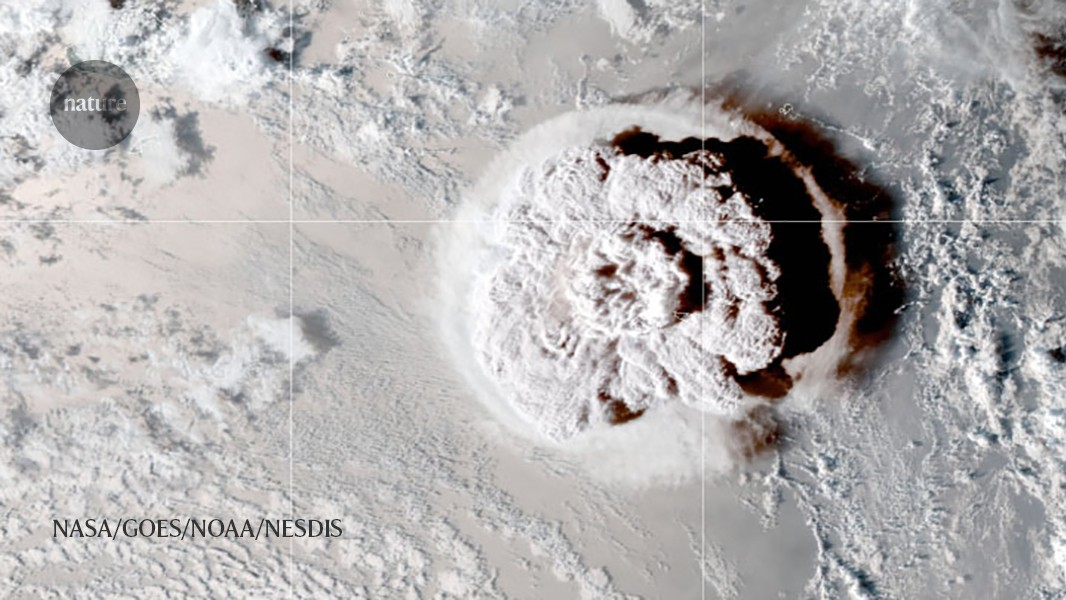Disir
Platinum Member
- Sep 30, 2011
- 28,003
- 9,611
- 910
Researchers are starting to piece together why the eruption of an underwater volcano in Tonga was so explosive — and what happened in the aftermath. Evidence gathered by two groups suggests that when the volcano’s centre collapsed, it spewed an enormous amount of magma that reacted violently with water, powering several large blasts and hundreds of much smaller explosions.
The Hunga Tonga–Hunga Haʻapai volcano erupted on 15 January 2022, producing the largest atmospheric explosion in recorded history. It sent shock waves around the world and a plume of ash into the upper atmosphere.

 www.nature.com
www.nature.com
I wonder how much, and what specifically, could be done with the knowledge that the caldera had collapsed the day before. I mean, you can't prevent it.
The Hunga Tonga–Hunga Haʻapai volcano erupted on 15 January 2022, producing the largest atmospheric explosion in recorded history. It sent shock waves around the world and a plume of ash into the upper atmosphere.

Burst of underwater explosions powered Tonga volcano eruption
Research expeditions find that the caldera’s collapse exposed huge amounts of hot magma to water.
I wonder how much, and what specifically, could be done with the knowledge that the caldera had collapsed the day before. I mean, you can't prevent it.